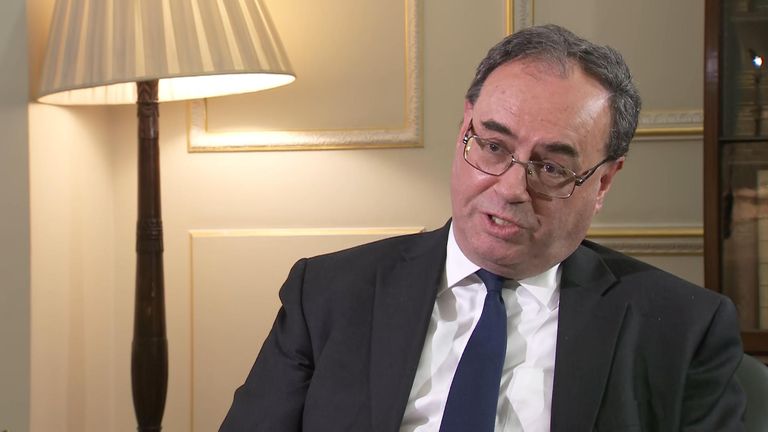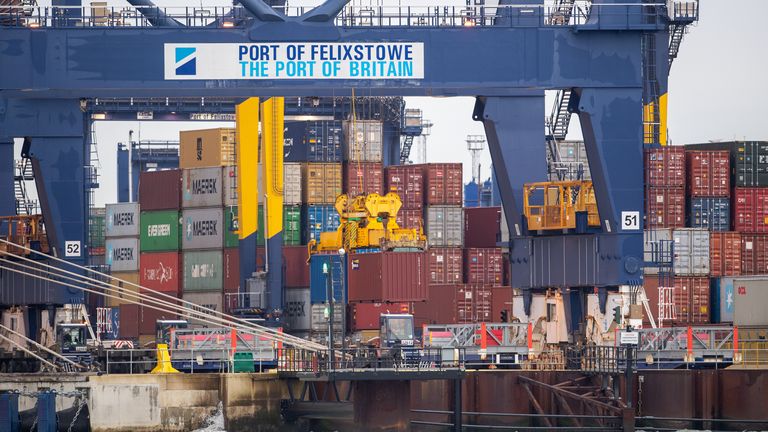Inflation pressures build as pace of economic rebound ‘appears to have peaked’
Inflation pressures facing UK firms hit record levels this month – amid signs that the pace of the economy’s rebound from the coronavirus crisis may have peaked.
Growth in business activity in June slipped back slightly from record levels seen the month before according to the latest “flash” UK purchasing managers’ index (PMI).
The survey’s measure of price pressures facing business showed input cost inflation – related to buying materials and parts – climbed to a joint record high last seen in 2008.
Output inflation – measuring prices passed on to customers – also climbed.
Those pressures were most starkly felt in the manufacturing sector, driven by shortages of raw materials, amid reports of “severe supply chain disruption”.
The figures come a day ahead of the Bank of England’s latest interest rate-setting meeting.
No change is expected but officials will have to decide how to respond to recent data showing an unexpectedly sharp uptick in consumer price inflation – which is now above the Bank’s 2% target – having until now regarded it as likely to be transitory.
The PMI report said the economy remained on course to have rebounded “very sharply” after contracting at the start of the year, with jobs growth accelerating to the strongest level since the survey began.
But June’s headline business activity reading of 61.7 – where the 50-mark represents the difference between growth and contraction – was down from a record high of 62.9 in May.
Chris Williamson, chief business economist at IHS Markit, which compiles the figures, said: “There are some signs that the rate of expansion appears to have peaked, as both output and new order growth cooled slightly from May’s record performances.”
Mr Williamson said growth still looked set to remain strong over the summer.
But he said inflation worries “have continued to intensify” and latest data hinted that price growth “has much further to rise after already breaching the Bank of England’s 2% target in May”.
Mr Williamson added that many firms were struggling to meet surging demand, often due to supply and staff shortages – with the latter feeding through to higher wage costs “which could add to worries that the recent spike in inflation could prove stickier”.
Elizabeth Martins, senior economist at HSBC, said: “The pace of growth may have moderated a touch, but activity levels remain high.
“And it looks like it may be supply constraints, not demand, that have put the brakes on growth.
“Indeed, the bigger news from this release is the widespread nature of inflation pressures – and the fact that they are being passed onto customers.
“Indeed, with pent-up demand and accumulated savings, we can see why firms might have a little more confidence in their customers’ ability to share some of the burden.”
Britain suffered its biggest annual slump for three centuries last year as a result of the pandemic and contracted again at the start of 2021 as lockdowns were reimposed.
It is forecast to rebound this year with the fastest growth since the Second World War.
There is an intensifying debate about when the Bank of England should ease off on its support for the economy, having expanded its already-vast money-printing stimulus and slashed interest rates to 0.1% last year.
Last week, the US Federal Reserve signalled its first rate hike would happen slightly earlier than previously thought – but still not until 2023.


